You are about to discovery the best ways for beginners and experienced lifestyle experts to live holistically every day and enjoy the process.
In a sense, our sister educational division, Spencer Institute is a holistic living school. You will want to take a moment to learn how you can expand your knowledge of enhanced living, and how to make a strong income helping others do the same.
The basic principles of holism are not new, having been around at least since the time of Hippocrates in the West, 2500 years ago, and even earlier in the Eastern healing traditions of Ayurvedic and traditional Chinese medicine. As you might suspect, the healers and physicians who practiced the art and science of holistic medicine all treated the whole person – body, mind, and spirit.
Holistic health, nutrition and well-being are essential to overall life success. Each of us possesses an “inner healer” of sorts, which is something that is known to reside in our hearts. Here are simple ways to bring holism into your daily life:
Practice Mindfulness
Living in the moment is one of the most important values of living holistically. Not caring about what the future brings and trying to make the best out of a situation are valuable skills to have. Try to look at things more objectively, instead of deciding whether it’s good or bad.
As little as 15 minutes of mindful reflection on your body, lifestyle and mental state can have significant benefits on your well-being and health. Mindfulness enhances (and supports) your emotional intelligence, and increases your overall feelings of well-being while also:
- Reducing stress and anxiety: Mindfulness can lead to less intense stress responses, reducing the adverse effects of stress and anxiety according to the Association of Psychological Science.
- Reducing depression: Mindfulness training reduces depression and anxiety. One study found that mindfulness training was as effective as antidepressant medications in preventing depression relapse.
- Lowering blood pressure: Researchers at Kent State Universities have found that mindfulness-based stress reduction (MBSR) can reduce high blood pressure, which affects nearly 60 million adults in the United States.
- Improving memory: New research suggests that mindfulness can change our brains and help with our short-term memory. Mindfulness training also improves working memory capacity and test performance while reducing mind wandering in the classroom.
- Supports healthy eating and weight loss: Mindfulness techniques have been shown to reduce overeating and obesity. Mindfulness training may help overcome the underlying causes of overeating – craving, stress, and emotional eating.
Respect the Amazing Powers of Your Body
Your body is a temple, and you should always take care of it. It’s a very powerful vessel. You can learn how to tap into the hidden powers of your body and use them to your advantage.
Fuel Your Body With Clean Food
Eating clean and healthy helps keep your body strong and without issues. Instead of grabbing a burger from a fast food restaurant, try making your meals at home. Be sure to get fresh vegetables and meat, and be careful when making your selections.
You can learn more about proper nutrition and fueling your body with clean food in the Fitness Nutrition Coach course.
Nourish Positive Relationships and Let go of the Bad
Everyone can get into a fight with their friends, family or partners. Sometimes things just don’t work out, and you’re stuck in an unhealthy pattern of living. No one wants to apologize and fix the problem. In the end, if someone simply doesn’t fit into your life anymore, move on. You don’t want that negative energy in your life.
Let Yourself Grow
You don’t have to change drastically, just modify your life and character one step at a time. It will take some time, but you will be a spectator to your progress. Take the time to grow.
Connect
Get in contact with others who are on the same page as you. You will find it much easier to start living holistically by being around people who have already chosen this path. You’ll make new friends, and they will help you on the path to a better life.
Be Aware
Be prepared for anything. Life can sometimes throw you a foul ball, and if you aren’t ready for it, it won’t go well. Be aware of your surroundings and try to make the best of a bad situation. Look at things objectively and with a wish to learn. Observe and research.
Routinely Meditate
Sit down, relax and focus on your breathing. Meditation is proven to be a very effective method of dealing with stress and helps people make more sound decisions.
Here are a few of the benefits of meditation:
- Reduces stress by calming the nervous system
- Improves memory and learning
- Improves sleep quality
- Creates a feeling of peace, calm, and centeredness
- Cultivates connection to Self/Source
- Enhances creativity and problem-solving ability
- Creates present moment awareness
- Changes your brain structure and function
There is a wide variety of meditaton techniques available that include seated meditation, walking meditation, mindfully eating and just about any activity you do can take on a meditative quality and awareness.
Be and Stay Active
If you have the energy after work, go for a jog or a hike when you come home. Keeping your body constantly active improves stamina and you will feel great about yourself afterward.
Eat Superfoods with Every Meal
Salmon, kale, avocado, flax seeds, chia seeds, hemp, blueberries, quinoa, spinach, and apples—these foods help you cleanse and strengthen your immune system, so you can fight infections easily and recover from illnesses faster.
Try Holistic, Natural Remedies
Ginger, garlic, vitamin C & Zinc have been used for fighting colds & flus. Honey, arnica & tea tree oil have antibacterial agents ideal for cuts and scrapes. Acupuncture is used to treat hormonal imbalances & herbs are a great way to detox & boost your energy.
Use Natural, Unscented Products when Possible
The skin is the largest organ in the body and everything that you put on your skin is absorbed into the bloodstream, so make sure your personal care products use natural ingredients.
The average adult uses nine personal care products daily, exposing him or her to 126 chemicals every day (for many women, the numbers can be higher). This statistic accounts for personal care products alone—not the chemicals in your foods, environment, or home.
Understand Which Ingredients Are Safe and Which Aren’t: This requires that we constantly be on the lookout for manufacturers that list vague ingredients like “fragrance,” “parfum” or “emollients,” rather than divulging specific ingredients. The more you read labels, the more you will notice that manufacturers are required to list the “active ingredients” in their products, such as active antibacterial ingredients, but not the inactive ingredients.
Adopt Ways to Manage Stress & Practice Them Daily
Did you know that weight gain, illnesses and lack of energy are mostly due to stress? Meditating, practicing yoga and consciously deep breathing are a few good examples to keep your stress levels in check.
Common Causes of Stress and Anxiety
- A change in employment or the loss of a job
- Changes in the family structure – children moving away, returning home
- Death and/or bereavement
- Getting divorced or married
- Sustaining an illness or an injury
- A job promotion
- Financial concerns
- Relocating residence
- Becoming new parents/birth of a child
You may observe that some clients presenting with good emotional health tend to be more aware of their thoughts, feelings, and actions. These are clients that have learned positive, healthy ways to cope with stress and challenges that are a normal part of everyday life. These clients typically feel good about themselves and tend to have healthy relationships.
Stress Management Techniques
- Avoid Caffeine, Alcohol, and Nicotine: Avoid, or at least reduce, your consumption of nicotine and any drinks containing caffeine and alcohol. Caffeine and nicotine are stimulants and so will increase your level of stress rather than reduce it. Alcohol is a depressant when taken in large quantities, but acts as a stimulant in smaller quantities. Therefore using alcohol as a way to alleviate stress is not ultimately helpful.
- Indulge in Physical Activity: Stressful situations increase the level of stress hormones such as adrenaline and cortisol in your body. When you feel stressed and tense, go for a brisk walk in the fresh air. Try to incorporate some physical activity into your daily routine on a regular basis, either before or after work or at lunchtime. Regular physical activity will also improve the quality of your sleep.
- Get More Sleep: Rather than relying on medication, your aim should be to maximize your relaxation before going to sleep. Make sure that your bedroom is a tranquil oasis with no reminders of the things that cause you stress.
- Try Relaxation Techniques: Focus on a word or phrase that has a positive meaning to you. Words such as “calm” “love” and “peace” work well, or you could think of a self-affirming mantra. Focus on your chosen word or phrase. If you find your mind has wandered or you become aware of intrusive thoughts entering your mind, simply disregard them and return your focus to the chosen word or phrase.
- Talk to Someone: Talking can work by either distracting you from your stressful thoughts or releasing some of the built-up tension by discussing it. Stress can cloud your judgment and prevent you from seeing things clearly. Talking things through with a friend, work colleague, or even a trained professional, can help you find solutions to your stress and put your problems into perspective.
- Keep a Stress Diary: Keeping a stress diary for a few weeks is an effective stress management tool as it will help you become more aware of the situations which cause you to become stressed.
- Breathe Deeply: Breathing exercises — or even just taking a few deep breaths — can help reduce tension and relieve stress, thanks to an extra boost of oxygen. While shallow breathing — a marker of stress — stimulates the sympathetic nervous system.
Why Choose Holistic or Wellness Coaching?
In general, coaching is about getting the very best out of someone and enabling them to make decisions that will improve their life. Coaches are hired and used for very many different reasons, and your ability to influence your clients is powerful. This could include concerns at work, or to improve relationships with family and partners; learning parenting skills that benefit both the child and parent or gaining a spiritual meaning to life, or a desire to “get things sorted out”.
With this in mind, more coaches find that offering holistic life coaching is a means of enhancing current coaching services already offered by a working coach.
Become a Certified Holistic Health Coach. Holistic health and well-being are essential to overall life success. Now you can earn a credential and gain the skills to help your clients achieve this success.
If you focus your work in the “holistic” areas of health, fitness and wellness, the Certified Holistic Nutrition Coach course is your next step. Without this knowledge and certification, you won’t have everything you need to help all your clients.
Our programs are open to anyone with a desire to learn and help others. There are no prerequisites.
That’s it for now.
Take action!
PS: Click here to see many helpful business/career resources








